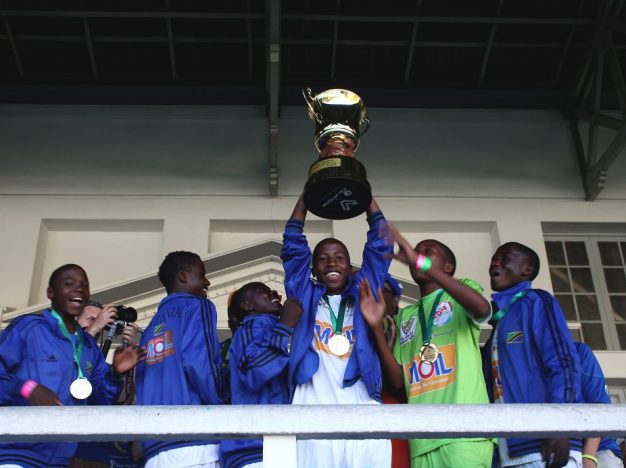
Street Child World Cup – more than just a game
In just a few weeks an international football tournament in Russia will represent a cry of help for children living on the streets. But it’s probably not the World Cup that you are thinking of.
While there may be plenty of goals seen on the field, there’s no doubt that changing negative perceptions and treatment of street children everywhere are the real goals of the third Street World Cup, the precursor to the main event itself.
Voices heard
More than 200 young people, all of whom have a connection to the street, will come together in May for a 24-nation extravaganza which is more than just a celebration of football. A festival of arts and a congress examining the rights of millions of children surviving on the streets will all play a big part in helping the young people make their voices heard.
Khalida Popal has been drilling a team of nine Mexican teenage girls in their training sessions, weeks before they jet off to Russia for their own World Cup. A former captain of the Afghan women’s football team, Popal believes football can open new avenues and boost self-esteem for the Team Mexico girls.
“When you enter the pitch, you forget about everything. The only thing you think about is the ball and the game – that’s the beauty of football,” said Popal, who was forced to flee her homeland after death threats.
‘Without identity’
“I know what it is being without identity, being without family, being without networks – what always helped me to come through that tough and difficult situation was to play football,” added Popal, an ambassador for UK charity Street Child United, which is organising the tournament alongside Save the Children.
Mexico will be joined by the likes of India, Brazil and Kenya in the tournament, whose ambassadors include Brazil’s Gilberto Silva and England’s Alex Scott. With the United Nations estimating there are up to 150 million children living on the streets worldwide, the organisers hope the event can help erase the stigma surrounding street children and improve their treatment.
“This is a global issue of children not being in a safe home,” said Joe Hewitt, head of Americas for Street Child United, on the pitch sidelines.
Street Child United
The event is also a child rights conference, said Street Child United, which works with Casa Alianza, a Mexican non-profit organisation provides a home to more than 100 children, many of whom are victims of violence, sexual abuse and trafficking.
For Mariana Nicol, football has always been a passion but she never imagined she might get a chance to train and play for Mexico. “I can’t believe it, I feel like it’s a dream,” said the 14-year-old, who is trying to finish primary school. “It’s exciting to be training with many kids that I know, and to then grab the ball and run with it or hand it back.”
For Marian and her Mexican Casa Alianza team mates – some of whom have suffered addiction, abuse and homelessness – flying to Russia will not only expand their horizons but help them see beyond the neglect that has so far dictated their lives, said its head.
Intense opposition
“Above all, I think the most important is to know that they can achieve whatever goals they set,” said Sofia Almazan Argumedo, Casa Alianza’s Mexico director. Despite growing up half a world away, the Mexican girls related to Popal’s story of overcoming intense opposition and intimidation in war-torn Afghanistan to play football.
Popal tells how Afghanistan’s first women’s national team worked to encourage more women and girls to play football, despite attacks and pressure from people opposed to them playing a ‘man’s game’.
“They were saying it’s against men’s honor and it’s not made for women. Women should stay in the kitchen and wash dishes,” said Popal. “Many times we got attacked by groups of men. It was really, really difficult.”
Encouraged
Fearing for her life after Taliban threats, she fled. Popal counts herself ‘one of the luckiest women’ in her country for escaped being shot like many women’s rights activists. After several years underground, she eventually made her way to a Danish asylum center where she encouraged women to play football to help ease crippling stress and depression as they awaited the results of their applications.
Now living in Copenhagen, she runs Girl Power, a non-profit organisation she founded that uses football and sport to help better integrate minorities, including immigrants and lesbian, gay, bisexual and transgender people in Europe.
Although barriers are gradually crumbling for women in Afghanistan, she said they still have to overcome significant hurdles to play football and take part in social activities. And her home country is far from alone. Women footballers around the world need more funding, facilities and equal pay, and she urged world governing body FIFA and local football federations to step up support.
Empowers
Interviews by the Thomson Reuters Foundation, the charitable arm of Thomson Reuters.




